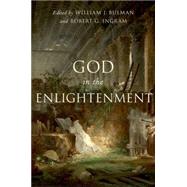- ISBN: 9780190267070 | 0190267070
- Cover: Hardcover
- Copyright: 5/23/2016
We have long been taught that the Enlightenment was an attempt to free the world from the clutches of Christian civilization and make it safe for philosophy. The lesson has been well learned. In today's culture wars, both liberals and their conservative enemies, inside and outside the academy, rest their claims about the present on the notion that the Enlightenment was a secularist movement of philosophically driven emancipation. Historians have had doubts about the accuracy of this portrait for some time, but they have never managed to furnish a viable alternative to it-for themselves, for scholars interested in matters of church and state, or for the public at large.
In this book, William J. Bulman and Robert G. Ingram bring together recent scholarship from distinguished experts in history, theology, and literature to make clear that God not only survived the Enlightenment but thrived within it as well. The Enlightenment was not a radical break from the past in which Europeans jettisoned their intellectual and institutional inheritance. It was, to be sure, a moment of great change, but one in which the characteristic convictions and traditions of the Renaissance and Reformation were perpetuated to the point of transformation, in the wake of the Wars of Religion and during the early phases of globalization. The Enlightenment's primary imperatives were not freedom and irreligion but peace and prosperity. As a result, Enlightenment could be Christian, communitarian, or authoritarian as easily as it could be atheistic, individualistic, or libertarian.
Honing in on the intellectual crisis of the late seventeenth and early eighteenth centuries while moving from Spinoza to Kant and from India to Peru, God in the Enlightenment takes a prism to the age of lights.
In this book, William J. Bulman and Robert G. Ingram bring together recent scholarship from distinguished experts in history, theology, and literature to make clear that God not only survived the Enlightenment but thrived within it as well. The Enlightenment was not a radical break from the past in which Europeans jettisoned their intellectual and institutional inheritance. It was, to be sure, a moment of great change, but one in which the characteristic convictions and traditions of the Renaissance and Reformation were perpetuated to the point of transformation, in the wake of the Wars of Religion and during the early phases of globalization. The Enlightenment's primary imperatives were not freedom and irreligion but peace and prosperity. As a result, Enlightenment could be Christian, communitarian, or authoritarian as easily as it could be atheistic, individualistic, or libertarian.
Honing in on the intellectual crisis of the late seventeenth and early eighteenth centuries while moving from Spinoza to Kant and from India to Peru, God in the Enlightenment takes a prism to the age of lights.







